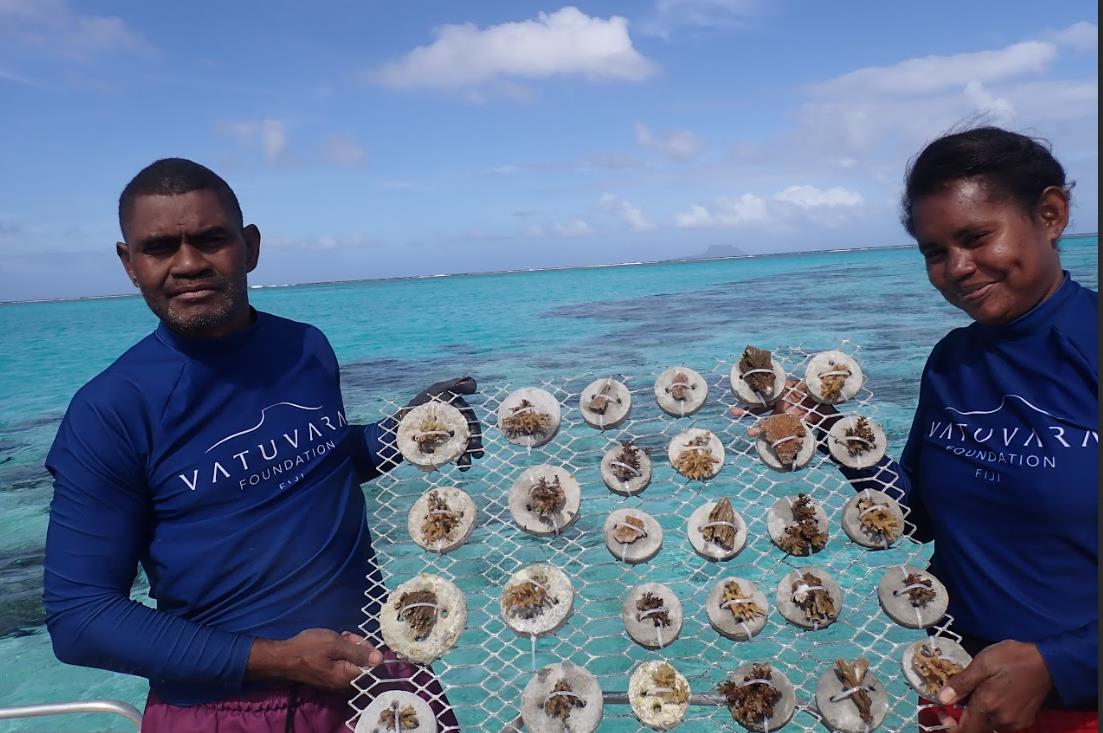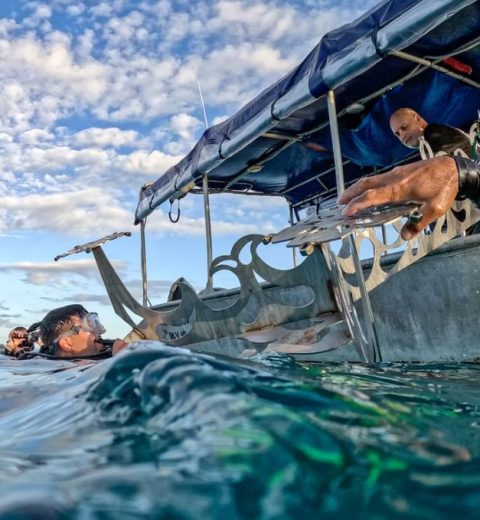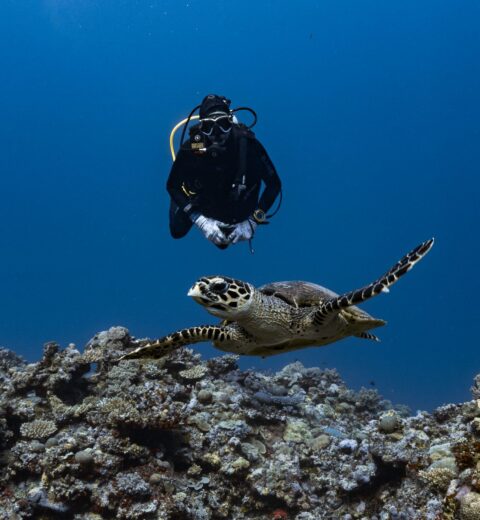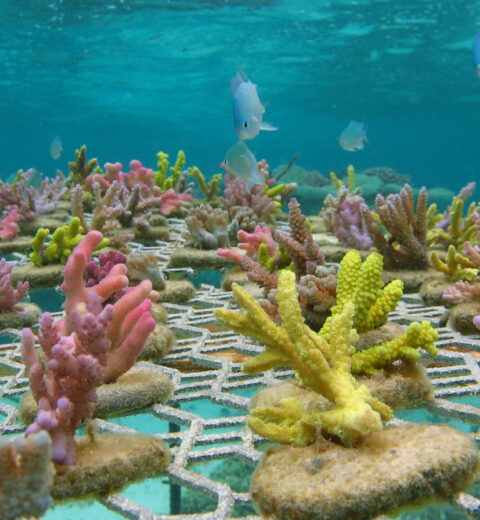By Filimone Mate
Marine Scientist, Vatuvara Foundation
The Lau group of islands has been identified as one of Fiji’s priority marine ecoregions, globally important due to its uniqueness, endemism, and high level of diversity. Our coral reef system embodies all the elements that make our underwater realm so exceptional. However, these vibrant ecosystems face unprecedented threats due to climate change, human-induced activities, disease, and overfishing.
Vatuvara Foundation aims to establish sustainable approaches to marine resource management for Fiji’s Northern Lau group that supports biodiversity conservation, community resilience, and sustainable community livelihoods. We collaborated with the Vatuvara Private Islands Resort in ridge-to-reef management and with the Yacata community to scale up our impact in reviving their natural resources. The Vatuvara Foundation trains and fosters local capacity-building on coral restoration best practices with community youth groups, where selected coral team members have access to knowledge that helps drive the implementation of these innovative techniques.
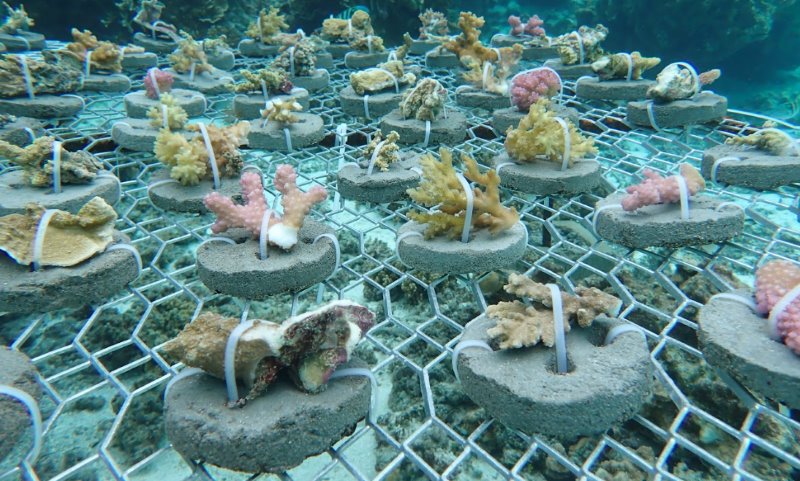
Through the years, our coral restoration program has been documenting, reviewing, and continuously improving its proactive strategies to fit the natural parameters of our surrounding reefs in Northern Lau, while recognising the impacts of global climate events on coral recovery at the island level. Our coral restoration efforts consist of multiple nurseries deployed at our priority sites that house collected coral fragments from our surrounding lagoon. These corals have shown strong thermal tolerance and are replicated in our nurseries to produce more resilient coral strains that are better adapted to the changing climate conditions. We have observed bleaching events in our surrounding coral reefs during the warm season in Fiji (November to April) that have extended through to May and June and are very confronting. Furthermore, highlighting the importance of creating opportunities for community partnerships and innovative strategies helps to maintain and assist the ecological functions of the reef system.
Our islands are not spared from the devastating impacts of climate change. Northern Lau was severely impacted by one of the biggest cyclones in the Southern Hemisphere, category 5 Tropical Cyclone Winston in 2016, which completely shattered livelihoods and natural resources of the local communities. This was followed by Tropical Cyclone Yasa, a category 5 cyclone in 2020, and Tropical Cyclone Ana, a category 3 cyclone in 2021. Vatuvara Foundation recently secured a novel parametric insurance program that provides a holistic strategy, and an exciting opportunity designed to ensure resources are readily available for reef restoration and community support in the event of a cyclone. BHP, Vatuvara Foundation and Willis Towers Watson are working together to pilot this parametric insurance product, a first for Fiji. Our coral team has been trained through this initiative in water safety, first aid response, and coral rehabilitation efforts. It is a 5-year program that will offer an important knowledge base for developing and applying this innovative product of coral reef resilience in other areas.
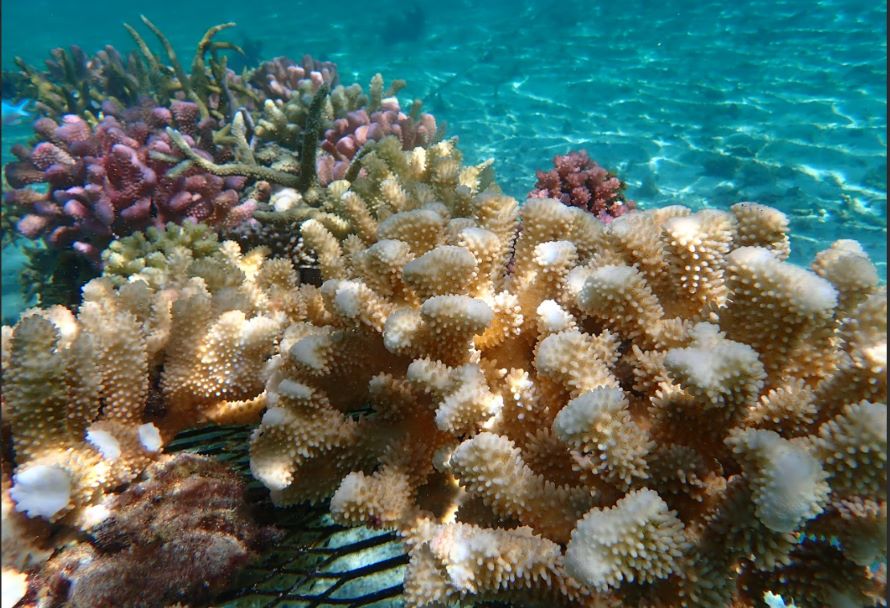
Vatuvara Foundation in partnership with the Australian Institute of Marine Science, integrated a new digital tool, ReefCloud that associates the power of human collaboration and artificial intelligence into our monitoring regime. Through training and technical support, our team was able to thoroughly utilise the platform and derive a methodology to quantify the findings that are gathered from our coral reef surveys. This was an easy transition and a game changer for our coral monitoring system as it saves time while it analyses quality photo imagery and transfers complex data rapidly to help make informed management decisions with communities and key stakeholders.
In understanding reef resilience, our organisation engages with the Yacata Island community through community-led initiatives that involve awareness, education, and cultural connections. Sharing scientific data and findings on the effect of climate change on the surrounding reefs with the community, helps to inform community sustainable practices and build resilience.
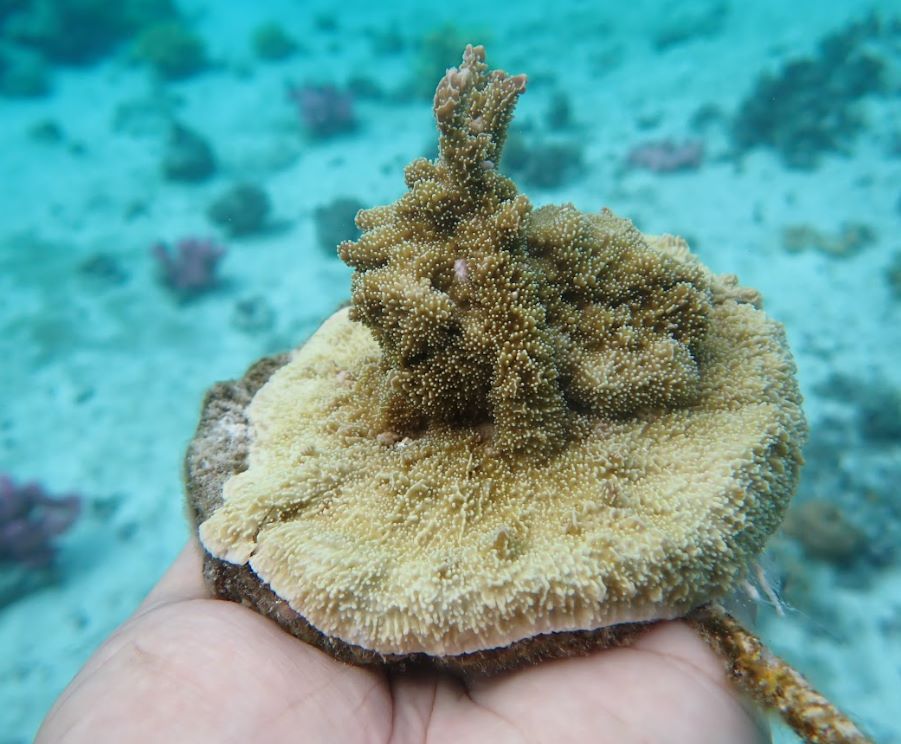
Ascertaining the roles and responsibilities of community members is a vital aspect of the conservation lens in shifting the paradigm to a bottom-up approach. The Yacata community endorsed a 5-year tabu (no-take zone) to boost ecosystem biodiversity and rejuvenate fish populations while weaving in the sanctity of traditional ecological knowledge and protocols. This sphere of influence is crucial for sustainable livelihoods as coastal communities are intricately linked to marine resources for food security and economic benefits. By building resilient reefs we are creating a sustainable pathway with the hope of sharing our underwater conservation efforts with the new generations of tomorrow.
#EXPLOREFiji #explorefijionline #FijiIslands #333islands
#Lau #Vatuvara #Yacata #coralrestoration #reefs #community #coralreefsystem
#resilientreefs #conservation #sustainability #ecosystems #SouthernHemisphere
#Bulaspirit #wherehappinesscomesnaturally

